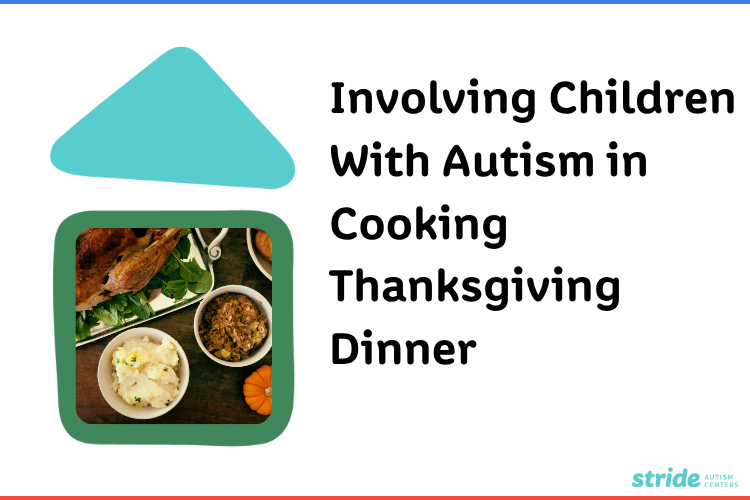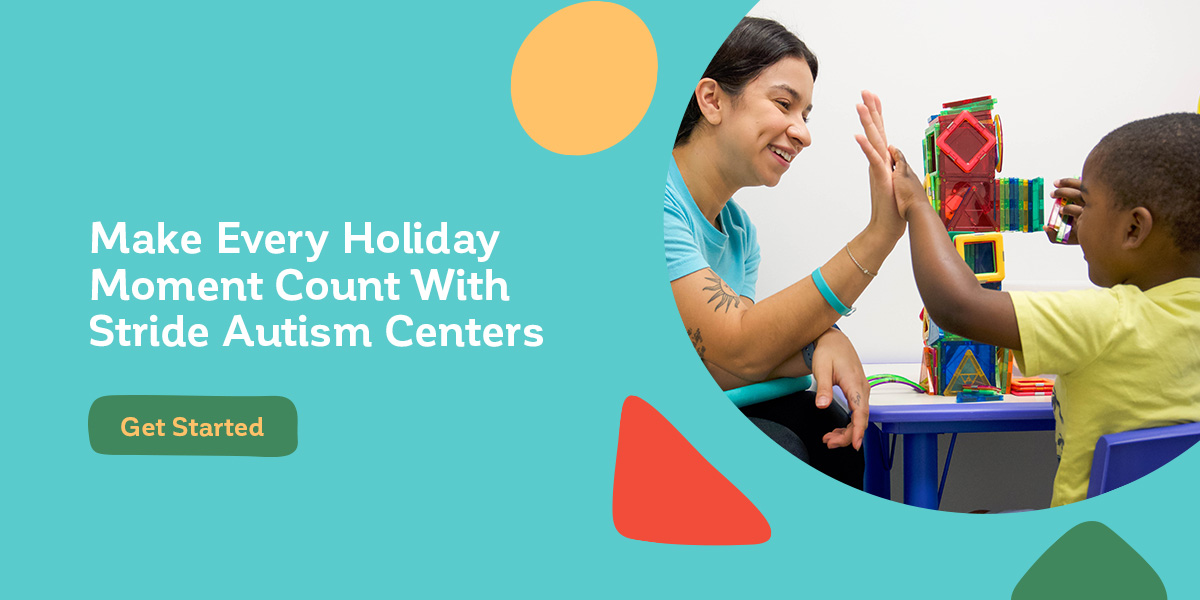Thanksgiving is a time to build lasting memories and traditions. Involving kids in the cooking and preparations adds extra meaning to these moments. Children also learn practical skills and grow in confidence when they play a part in making the holiday special.
For parents of young children with autism, the idea of including your child in cooking traditions can bring both hope and uncertainty. You may wonder how to balance your child’s sensory needs, communication style, and comfort level with your desire to create a joyful, shared experience.
It’s natural to feel both excited and a bit nervous about creating an inclusive holiday. Here are some tips to help you turn Thanksgiving meal prep into a fun and meaningful experience for your little one.
Planning Ahead for Turkey Day
To help your child with autism feel included in Thanksgiving cooking, start by planning. Children with autism often need extra time to adjust to changes in their routine. Letting them know about upcoming activities in advance can help them feel more comfortable. Planning also gives you time to prepare any accommodations your child might need.
A visual schedule is a great way to get your child ready and enthusiastic about helping out in the kitchen. Use pictures or a simple list to show your kiddo the day’s plan and what they’ll do to assist you. This creates a predictable routine and helps manage expectations about what they will and won’t be handling.
You can also involve your child in choosing what foods to make. Many autistic children have sensory sensitivities, so trying new foods at Thanksgiving may feel overwhelming. Allowing your child to help choose a few menu items gives them a sense of control and creates positive memories around the holiday.
Sensory-Friendly Cooking Activities for Young Autistic Kids
Young kids love helping out with the Thanksgiving meal. The trick is to give your child with autism meaningful tasks that are simple, age-appropriate, and fun. Think of cooking activities that don’t require too much precision, such as:
- Sorting or mixing ingredients
- Rolling out dough
- Washing vegetables
- Decorating cookies
- Putting rolls in the bowl
You may even want to plan to incorporate sensory play. Your kiddo may love using pumpkin puree for playdough or creating art with a pre-carved potato stamp.
Tips for Managing Holiday Stress and Expectations
Even adults can feel stressed when Thanksgiving doesn’t go as planned. For autistic kids, changes in routine and all the extra sights, sounds, and smells of the holiday can be especially overwhelming. So, be prepared to adapt your Thanksgiving cooking activities to your child’s unique needs. Some thoughtful strategies could include:
- Offering a safe space: Designate a quiet area where your child can retreat if they feel overwhelmed, complete with calming items like headphones or familiar toys.
- Addressing sensory concerns: Be mindful of loud noises or strong smells from appliances or ingredients.
- Providing familiar favorites: Make sure familiar foods are available, or bring comfort foods from home to supplement the Thanksgiving menu.
- Flexibility: Don’t stress over perfection. Instead, be willing to adapt the plan and have backup options to ensure your child feels comfortable and at ease.
Make Every Holiday Moment Count With Stride Autism Centers
Find support to make this holiday season joyful and inclusive. At Stride Autism Centers, we understand the unique challenges families with young autistic children face. Our centers in Illinois, Iowa, and Nebraska offer personalized, center-based ABA therapy that helps children aged 2 through 6 gain independence and confidence with hands-on strategies tailored to their needs.
With a family-centered approach and a commitment to early intervention, we empower kids and parents alike to create meaningful, inclusive traditions — at Thanksgiving and throughout the year.
Get started with Stride Autism Centers today and learn how we can support your family’s journey.







